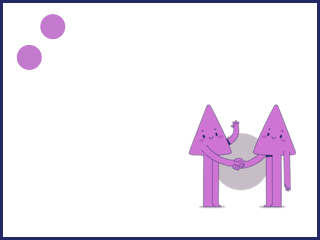In conjunction with this year’s Earth Hour on March 26, 2011, we invited people to IdeasProject to contribute their ideas to see how mobile phones and applications can improve our ability to live in a sustainable way. We were thrilled to receive app ideas on various fields of sustainability, including recycling, bicycling, dining green, and sustainable mobile phones. In the spirit of crowd sourcing, all the ideas gathered during the challenge can be found on the IdeasProject’s Beyond the Earth Hour challenge page and even used for further development.
The challenge was to innovate new ways to harness mobile phones and applications to benefit the planet. It shows how mobile technology can be put to use in taking action for sustainability in many ways. An additional purpose behind the challenge was to engage IdeasProject users to take part in the innovation process, and to demonstrate how anyone and everyone can be a part of the sustainability solution by providing their ideas. We received many excellent ideas, and we thank all the participants for their valuable contribution. Today, we are happy to present the challenge winner.
Winning idea: Mobile for Conservation
The winner of the Beyond Earth Hour Challenge is an idea titled Mobile for Conservation by Josette de Vroeg from Uganda. The goal of this idea is to harness mobile technology to raise awareness on the importance of conservation areas among people living around those areas. In essence, it is an SMS app to fight against poaching in Budongo Forest, Uganda.
“What you often see is that communities that live around conservation areas are not aware of the importance of conservation,” Josette explains.
Access to information about the importance of conservation is ensured with Text to Change, a model that uses voice SMS to reach the target group in an interactive way that is suitable for the litterate and illiterate alike. There are already active projects using the Text to Change model in several African and Latin American countries and those programs are free for the participants. Currently Text to Change is being used for communicating issues related to health, education and development, however the beauty of the model is that it fits just as well to raising environmental awareness.
The application has potential in various developing countries, while the suggested purpose and piloting ground for the app is Uganda, where the need is to inform locals about the negative effects of poaching bushbucks, antelopes and bush pigs.
According to WWF, poaching is one the most serious threats to many endangered charismatic species on our planet, such as tigers. In some areas, poaching accounts for more than 70% of the tiger deaths. The illegal trade with animal parts brings essential income to the poor people living in these areas. WWF works in many countries to help the local communities to find living from other sources and to understand the importance of conserving their natural environment. Raising the awareness of the local people in remote areas with high illiteracy is challenging, and Text to Change gives a new and innovative solution to this problem.
The many positive effects of the winning idea also include that it supports local biodiversity, and that it opens possibilities for co-operation between Text for Change, the WWF and Nokia.
The competition ideas were judged based on quality and functionality, usability and creativity, uniqueness, novelty value and innovativeness and the ability to benefit the environment and/or address the issue of climate change.
Honorable mentions: apps for reporting environmental abuses and daily challenge
In addition to the winner, two honorable mentions were given.
App for reporting environmental abuses is an idea submitted by Özgür Aslanbas from Germany, which encourages anyone and everyone to report on any environmental abuse that they witness having happened or being done. Using a mobile phone, it’s easy to report such abuse by taking a photo or video and connecting to the Internet for sharing the information. Similar type of information collection combined with interactive mapping has already been developed and successfully practiced by Ushahidi http://www.ushahidi.com/ that has used the method for example for mapping reports of violence in Kenya.
The daily challenge by Linda Nummelin from Finland is an application that would suggest a small thing to do every day while the participants would keep up with the number of people accepting the challenge and the estimated impact of it. Participants would be able to propose challenges that promote environmental or social sustainability. The key of the idea is in making the steps small enough while showing how the small things we do are not just a drop in an ocean, but that they can have significant impact, too. The daily challenge takes into account the very human need to be reminded about things, no matter how simple they are. In addition, The communal aspect of encouraging sustainability actions is well integrated, as well.
Source : http://blog.ovi.com/2011/06/07/mobile-for-conserva...



 Accueil
Accueil
 Mobile Value Added Services (MVAS) Market by Solution, by End User, by Vertical, & by Geography - Global Forecast and Analysis to 2020 - Reportlinker Review
Mobile Value Added Services (MVAS) Market by Solution, by End User, by Vertical, & by Geography - Global Forecast and Analysis to 2020 - Reportlinker Review









